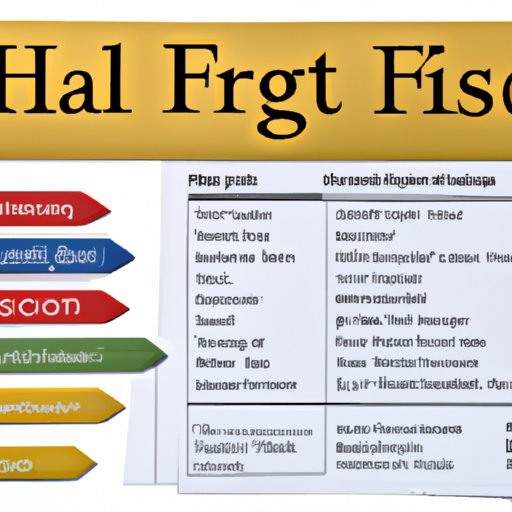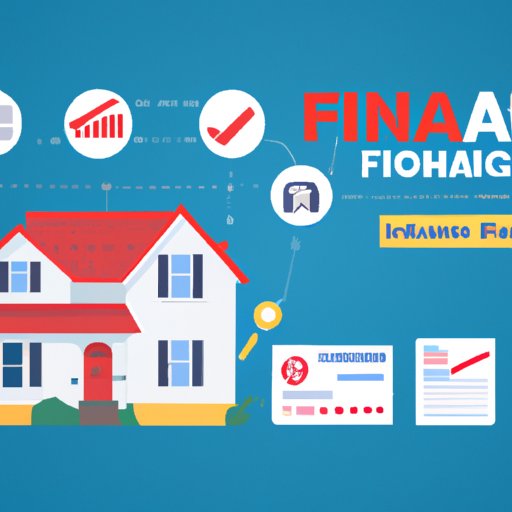Exploring the FHA Financing Requirements: What You Need to Know
If you’re considering applying for an FHA loan, it’s important to understand the FHA financing requirements that you need to meet in order to qualify. The Federal Housing Administration (FHA) offers a variety of loan programs designed to help individuals with lower incomes or less-than-perfect credit scores become homeowners. However, these loans come with certain restrictions and requirements. In this article, we’ll explore the various FHA financing requirements, including the different types of requirements, how to qualify for an FHA loan, and what to expect during the application process.

Overview of FHA Financing Requirements
The FHA requires borrowers to meet a number of requirements in order to be approved for a loan. These requirements include having a good credit history, meeting certain income and employment requirements, and being able to afford the monthly mortgage payments. Additionally, the FHA also has specific requirements related to down payments, credit scores, debt-to-income ratios, and mortgage insurance premiums.
Understanding the Different Types of FHA Financing Requirements
Below is an overview of the different types of FHA financing requirements:
Down Payment Requirements
The FHA requires borrowers to make a down payment of at least 3.5% of the purchase price of the home. This down payment can be made through cash savings, a gift from a family member, or even a grant from a state or local government. It is important to note that the FHA does not allow borrowers to use borrowed funds for their down payment.
Credit Score Requirements
The FHA requires borrowers to have a minimum credit score of 580 in order to qualify for a loan. Borrowers with a credit score below 580 may still be eligible for an FHA loan, but they will be required to make a larger down payment (at least 10%).
Debt-to-Income Ratio
The FHA requires borrowers to have a debt-to-income ratio of no more than 43%. This means that no more than 43% of a borrower’s gross monthly income should go towards paying off debts such as credit cards and car loans. If a borrower’s debt-to-income ratio is higher than 43%, they may still be eligible for an FHA loan but they will be required to take steps to reduce their debt-to-income ratio before they can be approved.
Mortgage Insurance Premiums
The FHA requires borrowers to pay an upfront mortgage insurance premium (MIP) of 1.75% of the loan amount. Additionally, borrowers are also required to pay an annual MIP, which is typically 0.85% of the loan amount. These MIPs are paid for by the borrower in order to protect the lender in case of default.
Pros and Cons of FHA Financing
As with any type of loan, there are both pros and cons to consider when it comes to FHA financing. On the plus side, the FHA has relatively lenient eligibility requirements, making it easier for many people to qualify for a loan. Additionally, the FHA offers favorable interest rates and allows borrowers to make smaller down payments compared to other loan programs. On the downside, FHA loans require borrowers to pay mortgage insurance premiums, which can add to the overall cost of the loan.

A Guide to Understanding FHA Financing Requirements
Qualifying for FHA Financing
In order to qualify for an FHA loan, borrowers must first meet the eligibility criteria set forth by the FHA. This includes having a valid Social Security number, being of legal age to sign a contract in the state where the property is located, and having a steady income. Additionally, borrowers must also gain approval from an FHA-approved lender.
Knowing What to Expect During the Application Process
Once a borrower has met the eligibility criteria and gained approval from an FHA-approved lender, they can begin the application process. This typically involves gathering all the necessary documentation, such as proof of income, tax returns, and bank statements. Once all the paperwork is in order, borrowers can then apply for a loan and undergo an appraisal of the property. This appraisal will help the lender determine the value of the property and ensure that it meets the FHA’s minimum standards.
Other Fees Associated with FHA Financing
In addition to the MIPs mentioned above, there are other fees associated with FHA financing. These fees include an origination fee, a title search fee, a survey fee, and a closing fee. It is important to keep in mind that these fees can vary depending on the lender, so it is important to shop around to find the best deal.

How to Qualify for FHA Financing
In order to qualify for an FHA loan, borrowers must have a good credit history and meet the income and employment requirements set forth by the FHA. Additionally, borrowers must also have a low debt-to-income ratio and be familiar with the different types of mortgages available. Additionally, it is important to understand the FHA’s maximum loan limits, which vary by county.

Navigating the FHA Financing Process: What You Need to Know
When it comes to navigating the FHA financing process, there are several things to keep in mind. First, it is important to work closely with an FHA-approved lender who can guide you through the entire process. Additionally, it is important to make sure your application is complete and accurate, as missing information can delay the process. Finally, it is important to understand the timelines involved in the process, as well as to keep track of your financing status throughout the process.
FHA financing can be a great option for those looking to buy a home but don’t have perfect credit or enough money saved for a large down payment. However, it is important to understand the FHA financing requirements and the application process before taking the plunge. By taking the time to learn about the different types of requirements and the qualifications needed to qualify for an FHA loan, you can be better prepared to navigate the process and find the right loan for you.
(Note: Is this article not meeting your expectations? Do you have knowledge or insights to share? Unlock new opportunities and expand your reach by joining our authors team. Click Registration to join us and share your expertise with our readers.)
